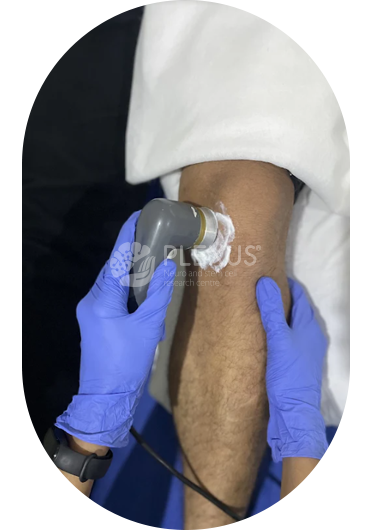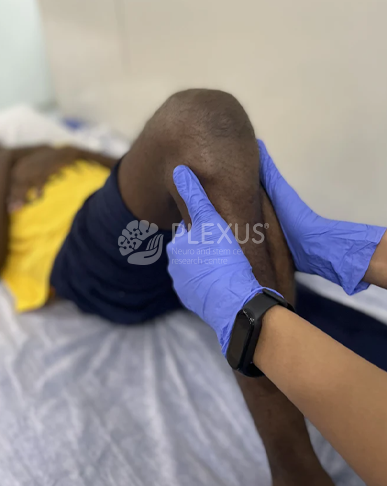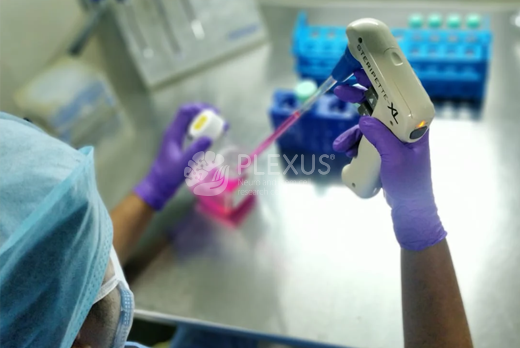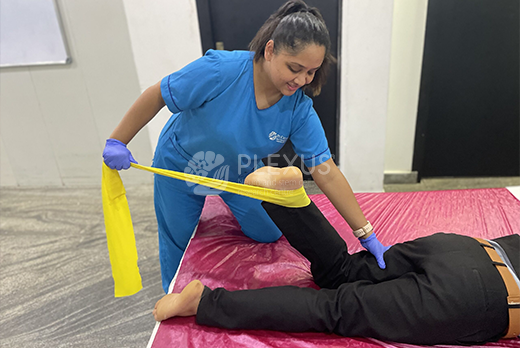- About Us
- Cell Therapy
- Neurology
- Disorders
- Services
- All Therapies
- Regenerative Rehabilitation
- Rehabilitation for Stroke
- Rehabilitation for Spinocerebellar Ataxia
- Parkinson’s Disease Rehabilitation
- Multiple Sclerosis Rehabilitation
- Rehabilitation for Spinal Cord Injury
- Rehabilitation for Motor Neuron Disease
- Rehabilitation for Cerebral Palsy
- Brachial Plexus Injury rehabilitation
- Rehabilitation for Global Developmental Delay
- Childhood Disorders Clinic
- Outpatient Services
- Ask a question
- Request an appointment
- About Us
- Cell Therapy
- Neurology
- Disorders
- Services
- All Therapies
- Regenerative Rehabilitation
- Rehabilitation for Stroke
- Rehabilitation for Spinocerebellar Ataxia
- Parkinson’s Disease Rehabilitation
- Multiple Sclerosis Rehabilitation
- Rehabilitation for Spinal Cord Injury
- Rehabilitation for Motor Neuron Disease
- Rehabilitation for Cerebral Palsy
- Brachial Plexus Injury rehabilitation
- Rehabilitation for Global Developmental Delay
- Childhood Disorders Clinic
- Outpatient Services
- Ask a question
- Request an appointment
Know about an Orthopedic Condition like Knee Osteoarthritis
Living with an Orthopedic Condition like Knee Osteoarthritis can be extremely challenging. Ongoing pain, physical limitations, and depression can affect an individual’s ability to engage in social, community, and work-related activities. However, arming yourself with the right knowledge can help you get the best treatment plans.

Is your parent or grandparent experiencing severe pain, stiffness, inflammation, loss of mobility, or any other symptom in their knees? Then you need to head to our Plexus centers in Bangalore and Hyderabad to get an immediate consultation for Knee Osteoarthritis. However, you may be wondering why choose Plexus, since it is widely known to treat neurological conditions. Plexus specializes in Cell Therapy, which is established as a successful form of treatment for degenerative Orthopedic Conditions like Osteoarthritis.

Decoding Knee Osteoarthritis
Do you know that Osteoarthritis is the most common age-related joint disease affecting more than 80% people beyond 55 years of age? What more is that approximately 46% of people develop it during their lifetimes.
Also called wear-and-tear arthritis, degenerative arthritis, and degenerative joint disease, Osteoarthritis occurs when the cartilage (which acts like a shock absorber) breaks down and enables the bones to rub together. The friction leads to knee pain, stiffness, and swelling. Although Osteoarthritis can affect any part of the body such as hands, fingers, shoulders, spine, and hips, knees are the most commonly affected areas of the body.
Symptoms of Knee Osteoarthritis
Knee Osteoarthritis symptoms often develop slowly and worsen over time. Signs and symptoms include:
- Pain
- Stiffness
- Tenderness
- Loss of flexibility
- Grating sensation
- Bone spurs
- Swelling
- Warm feeling in the affected area
- Creaking, crackly sou
Symptoms of Knee Osteoarthritis
Causes of Knee Osteoarthritis
Treatments for Knee Osteoarthritis
Cell Therapy
01 Cell Therapy
In recent years, Cell Therapy has shown promising results for treating patients with Knee Osteoarthritis. As a form of regenerative medicine, it utilizes the body’s natural healing mechanism to repair the damaged cells by reducing inflammation and modulating the immune system.
The aim in using cells is to support the self-healing process of the knee joint cartilage, which results in relief from symptoms of the condition. Clinical trials in patients with Knee Osteoarthritis have shown a significant advantage of Cell Therapy over traditional surgical approaches such as autologous chondrocyte transplantation. Since cartilage biopsy is unnecessary, external stress and cellular damage are not applied at the donor-site articular surface. Moreover, direct intra-articular injection of mesenchymal cells has proven as a technically simple way to treat advanced Osteoarthritis of the knee.

Physical Therapy
02 Physical Therapy
Individuals with Knee Osteoarthritis often face problems in walking, maintaining balance, and other movements. Many patients even complain of severe pain in their knees. Research has shown that exercise is effective in managing Knee Osteoarthritis, by reducing pain and improving function. Thus, performing Physiotherapy under guided supervision of experts, can play a major role in improving joint mobility, improving overall quality of life, and reducing depression. Being a non-invasive treatment, physiotherapists can construct effective exercise programs to assist in your everyday functioning in managing Knee Osteoarthritis.

Our treatment program at Plexus
At Plexus, we provide a curated treatment plan to slow the progression of Knee Osteoarthritis and make it easier for you to manage its symptoms. Under the guided supervision of Dr Na’eem Sadiq, we provide the most advanced Cell Therapy that utilizes the body’s natural healing mechanism to treat the condition.
Being a form of regenerative medicine, this therapy is designed to repair the damaged cells within the body by reducing inflammation and modulating the immune system. Furthermore, it allows the body to heal itself well enough to mitigate the symptoms of the condition for longer periods. This substantially increases the quality of life for patients as well as delay disease progression.
Range of motion exercises
- Maintain and increase knee joint mobility
- Lubricate the joint
Strengthening exercises
- Decrease knee pain
- Support join range of motion
- Improve functions
Flexibility exercises
- Increase range of motion
- Restore normal knee joint function
What our patients say

Catherine Cutinho (name changed)
“My 55-year-old mother was unable to climb the stairs and sit down to eat due to severe knee pain. When we took an orthopedic opinion, the X-ray showed degeneration of knee joints and the only treatment suggested was calcium tablets, vitamin D sachets, and pain killer medicines. When I came to know about the application of Cell Therapy in Knee Arthritis, I contacted Plexus. Here my mom was assessed thoroughly and treated under Dr. Na’eem and his excellent team. After the treatment, her knee pain completely disappeared and she is able to climb stairs and even sit down without any pain. I am very happy with her progress. Thank you, Plexus.”

Sushmitha V. (name changed)
"Due to severe knee pain I was not able to do a lot of my work which required walking. I was given the option to choose between a knee surgery and cell injections. I went ahead with cells and I would say that, that was the best decision of my life. Thanks to Dr Na'eem, my knee pain magically disappeared and I re-gained all my lost mobility."

Catherine Cutinho (name changed)
“My 55-year-old mother was unable to climb the stairs and sit down to eat due to severe knee pain. When we took an orthopedic opinion, the X-ray showed degeneration of knee joints and the only treatment suggested was calcium tablets, vitamin D sachets, and pain killer medicines. When I came to know about the application of Cell Therapy in Knee Arthritis, I contacted Plexus. Here my mom was assessed thoroughly and treated under Dr. Na’eem and his excellent team. After the treatment, her knee pain completely disappeared and she is able to climb stairs and even sit down without any pain. I am very happy with her progress. Thank you, Plexus.”

Sushmitha V. (name changed)
"Due to severe knee pain I was not able to do a lot of my work which required walking. I was given the option to choose between a knee surgery and cell injections. I went ahead with cells and I would say that, that was the best decision of my life. Thanks to Dr Na'eem, my knee pain magically disappeared and I re-gained all my lost mobility."

Catherine Cutinho (name changed)
“My 55-year-old mother was unable to climb the stairs and sit down to eat due to severe knee pain. When we took an orthopedic opinion, the X-ray showed degeneration of knee joints and the only treatment suggested was calcium tablets, vitamin D sachets, and pain killer medicines. When I came to know about the application of Cell Therapy in Knee Arthritis, I contacted Plexus. Here my mom was assessed thoroughly and treated under Dr. Na’eem and his excellent team. After the treatment, her knee pain completely disappeared and she is able to climb stairs and even sit down without any pain. I am very happy with her progress. Thank you, Plexus.”

Sushmitha V. (name changed)
"Due to severe knee pain I was not able to do a lot of my work which required walking. I was given the option to choose between a knee surgery and cell injections. I went ahead with cells and I would say that, that was the best decision of my life. Thanks to Dr Na'eem, my knee pain magically disappeared and I re-gained all my lost mobility."
FAQs answered
Cell Therapy has proven to be extremely effective in the treatment of chronic knee pain.
No, Cell Therapy is a painless procedure.
Yes, Cell Therapy can be used in a variety of orthopedic conditions and it shows great results due to the reparative nature of Cells.











